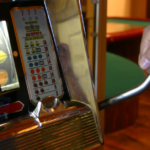Suing Police Over Unlawful Strip Search: An Interview With Luke Moore

Luke Moore was exiting Goulburn’s Hibernian Hotel on a Saturday evening, when a group of four police officers asked to speak with him. After conducting an initial pat down search that found nothing, the officers went on to strip search the Charles Sturt University law student.
Mr Moore is now suing the NSW Police Force over the matter. His case comes at a time when questions are being raised as to the validity of how routine the use of this invasive practise within the community has become over recent years.
NSW Greens MLC David Shoebridge has been pursuing the issue. He released statistics obtained in parliament last year that showed that over the four year period ending in June 2018, strip search use had increased by 47 percent: 3,735 strip searches in 2014-15, compared with 5,483 in 2017-18.
While just last week, the NSW Greens justice spokesperson revealed that NSW police is issuing search quotas that local area commands must achieve. And although strip searches fall within the general person search quota, it does seem to be a reason for their growing widespread use.
The powers that be
The NSW police powers to strip search citizens without a warrant are contained in the Law Enforcement (Powers and Responsibilities) Act 2002 (NSW), also known as the LEPRA.
Section 31 of the legislation outlines that an officer must hold a reasonable suspicion that a strip search is warranted, and while it’s being carried out in the field, “the seriousness and urgency of circumstances” must make it necessary to carry out the procedure.
Further protocol that police must follow is set out in section 33 of the LEPRA. This includes conducting a strip search in a private area out of the presence or view of a member of the opposite sex, and officers carrying out a search must be of the same sex as the individual being searched.
Recently, the Redfern Legal Centre commissioned two UNSW law academics to produce the Rethinking Strip Searches by NSW Police report. And Dr Michael Grewcock and Dr Vicki Sentas found that since 2006, the use of strip searches in this state has increased twentyfold.
The report further goes on to recommend an overhaul of the laws in the LEPRA, which the Redfern Legal Centre’s head of police accountability practice Samantha Lee has described as “vague and legalistic”.
Suspect reasoning
Mr Moore was initially found guilty of hindering police as they attempted to strip searched him. However, on appeal, he was acquitted. And now, he’s gearing up to sue the NSW Police Force over what has been ruled an unwarranted strip search.
The Goulburn man believes a reason that officers decided to search him could have been related to a previous fraud conviction – which involved him having overdrawn $2.1 million from his bank account – a charge in respect of which he was subsequently acquitted.
Sydney Criminal Lawyers spoke to Mr Moore about what happened to him as he left the pub on an April night two years ago, his plans to sue the state, and the impact he believes the widespread use of strip searches is having upon the community.
Firstly, you were strip searched by police out the front of the Hibernian Hotel in Goulburn back in April 2017.
I wasn’t technically strip searched outside the pub. I refused to be searched outside of it. They arrested me, took me to the station and searched me.
But, I refused to be searched at first, because they wanted to search me in the paddy wagon out the front of the pub. And I wouldn’t let that happen.
I protested and said, “You’re not allowed to do this. You’ve got to respect my privacy. You can’t strip search me unless it’s urgent.” My argument is that the initial stop was illegal.
So, how did they come to stop you?
I left the pub and bumped into them out the front. I’m known to police because of everything that happened with my fraud acquittal. But, they weren’t there to arrest me. And I wasn’t dealing drugs or doing anything suspicious.
I just walked out of the pub and bumped into a bunch of police. They asked to speak with me. I didn’t want to speak with them, so I shrugged my shoulders and kept on walking.
Then one of them said, “Luke, we need to speak with you.” I considered that a clear direction to stop. I ignored them when they asked me to speak with them. I kept on walking and that’s when they said they needed to speak to me.
At the same time that was happening, the four officers surrounded me.
They took you to the police station and you were strip searched?
Yes. I was strip searched at the station.
How would you describe that experience?
Violating and unnecessary – criminal. Strip searches should be a crime.
Were you told why you were being strip searched?
Because I might possibly have drugs on me. They were the words she used. They thought I “might possibly have drugs” on me.
Then when the initial search failed to find anything, that combined with my protests of the legality of the search, were what she used to escalate the search to a strip search.
An ordinary bloke just leaves a pub on a Saturday night, gets bailed up by four coppers and patted down for five minutes.
They find nothing, and then they decide they’re going to strip search me in the back of a paddy wagon, even though they found no drugs and had no intelligence that I was carrying any.
They didn’t think I was a drug dealer. They had no actual reason to be searching me or direct intelligence that I was carrying drugs at that particular time.
Mr Moore, you’ve already touched on this, but why do you think the police decided to strip search you on the night?
Strip searches have become that much of a part of policing that they don’t consider how violating it is.
I compare it with raiding someone’s house. It’s something they should have a warrant for. I’d much rather someone go through my bedside table than strip me naked in a room full of strangers.
Following the strip search incident, you were charged with hindering police. That was eventually dropped. What happened there?
I was found guilty in the Local Court. I was represented by Legal Aid. Then I appealed to the District Court and represented myself. And I won.
They found that the request for me to be strip searched in the paddy wagon was unlawful. And therefore, my arrest and subsequent strip search was unlawful.
Now you’re suing the state. What does that involve?
The strip search was unwarranted – because whether you agree with their strip search policy or not – there was no way that the situation with me could be described as serious and urgent enough to warrant something as violating as a strip search.
In my view, I don’t think there’s ever going to be a situation where searching someone for an amount of drugs so small that it can fit in their underwear could ever be described as serious and urgent.
Eventually, when the courts make a ruling on this particular subject, that’s what they will find. You can’t go around strip searching your own citizens, because they might possibly have drugs on them.
The rule is that it has to be serious and urgent, and any amount of drugs that’s small enough to be hidden in your underwear is not serious or urgent enough to warrant the extreme violation of a strip search.
Strip searching your own citizens is disgusting. Let alone to be doing it to the extent that the police are doing.
Now, it’s come out that they’ve got quotas on the amount of strip searches that they’re allowed to do. That doesn’t coincide with the fact that they can only do it in serious and urgent situations. Those two things can’t go hand in hand.
And lastly, based on your experience, Mr Moore, what sort of impact do you think strip searching people is having on members of the public, especially those – like you – who’ve done nothing wrong?
Oh, those who’ve done nothing wrong, minorities, minors… people that have historically been forced to do things by the government and police that they shouldn’t be forced to do.
It’s traumatic. It’s devastating for some people – if you are a victim of sexual assault, and you are forced to get naked in a room full of officers. You are strip searched in front of people you have never met before.
Whether you’ve had experience with the police or not, it doesn’t take away from the fact of how violating a strip search is. The police should be punished. It should be a criminal offence to unlawfully strip search a person.







